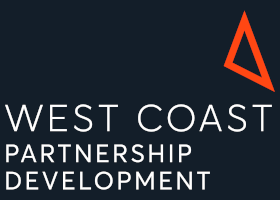
WCPD Managing Director highlights rail’s important role in transport decarbonisation
Shamit Gaiger represents rail at panel event focusing on environmental sustainability
- West Coast Partnership Development Managing Director Shamit Gaiger represented railway industry at decarbonisation event.
- Highlighted that the industry needs to continue with electrification and researching alternative train fleets.
- Event saw a number of keynote speakers address environmental sustainability.
West Coast Partnership Development (WCPD), Managing Director, Shamit Gaiger, outlined the importance of rail’s role in transport decarbonisation to industry leaders at a recent event focusing on environmental sustainability.
She represented the rail industry on a panel discussion at the event titled – “Tackling decarbonisation with purpose” held by Arup - who provide advisory services in design, engineering, architecture and planning.
She was joined by key-note speakers Chris Boardman, Olympic Cycling Champion and leader of Active Travel England; Karen Dee, CEO of Airport Operators Association; and Nick Harris, CEO, National Highways.
Arup’s event was organised following the publishing of their own paper “Toward net zero land transport”. The document recommends three approaches to decarbonisation: spheres of influence, the transport lifecycle and organisational maturity to help guide the transport decarbonisation efforts of governments, authorities, and other decision makers.
In 2021, the Department for Transport published their “Transport Decarbonisation Plan” with the target to reach net zero carbon emissions in transport by 2050. The purpose of the panel event was to discuss how decarbonisation in transport can be accelerated, understanding the barriers, and what is needed to unblock them and roll out solutions at scale.
Decarbonisation is seen by many as the transport industry’s biggest challenge in half a century, which is highly significant and vast potential benefits for delivering greener journeys.
After the event, Shamit Gaiger said: “Rail must play a key role in decarbonisation if we are to reach the Department for Transport’s 2050 net zero goal. As an industry we must continue with a cost-effective programme of electrification guided by Network Rail’s Traction Decarbonisation Network Strategy. For routes that can’t be electrified, there needs to be ongoing investment in to researching and procuring alternative train fleets, such as battery-powered and hydrogen; and in the interim we must continue to deliver new bi-mode trains where possible, to remove aging diesel trains off the network.
“But technology is not the only answer. We should champion modal shift towards rail and work with the government to establish policies that will enable this. At the same time, we must continue working to get more people on to trains through improving service reliability, customer experience and transport integration at stations. The panel was unanimous that we need to work better across all modes and decarbonisation is a good cause to get everyone around the table.”
Notes to editors
About West Coast Partnership Development
West Coast Partnership Development (WCPD) is designing and mobilising new high-speed services for the UK. These services will run on the new High Speed 2 (HS2) route and the existing railway, delivering quicker journeys and more capacity between London and Birmingham, Liverpool, Manchester, Cumbria and Scotland.
Its goal is to maximise the benefits of the significant investment from the Department for Transport into the new High Speed 2 (HS2) railway, as well as the upgrades to the railway on the West Coast Mainline.
